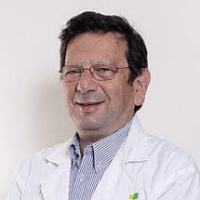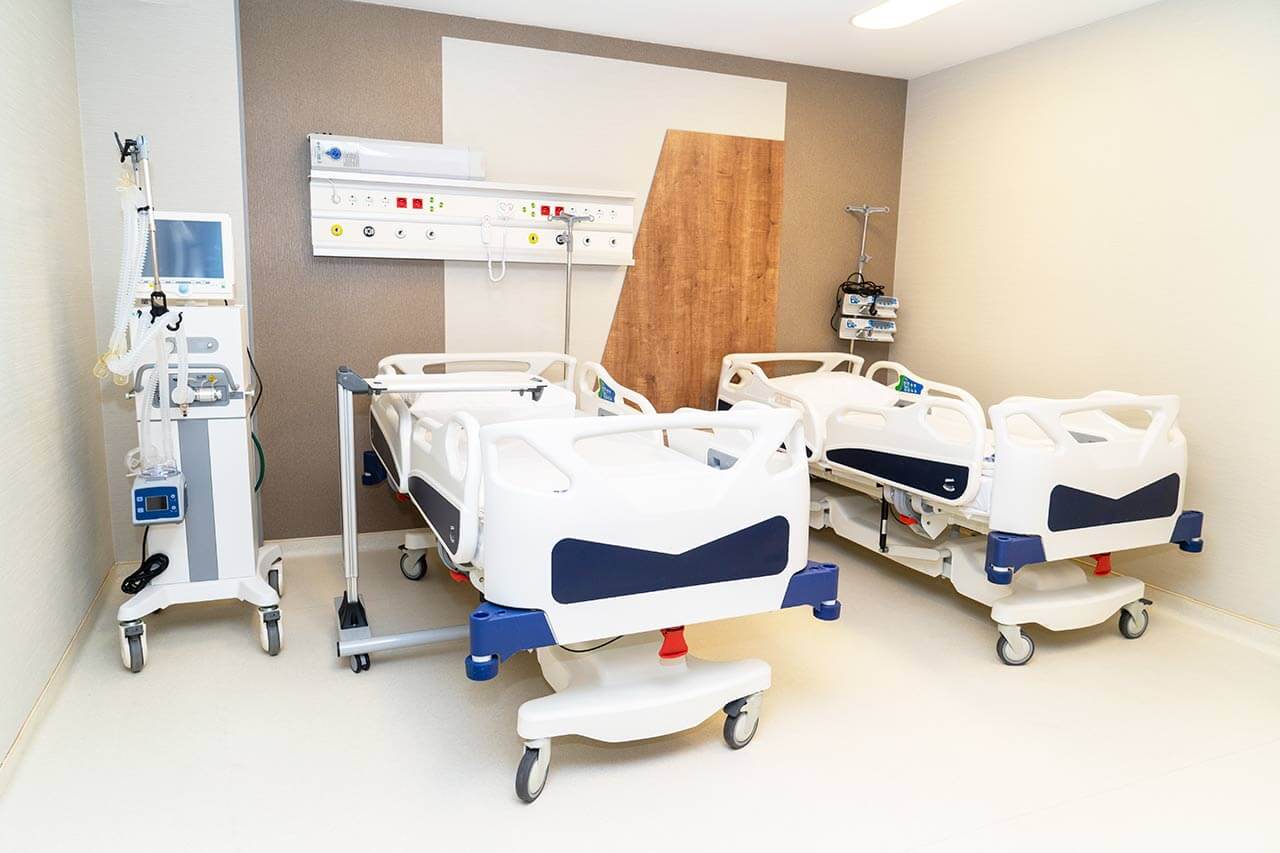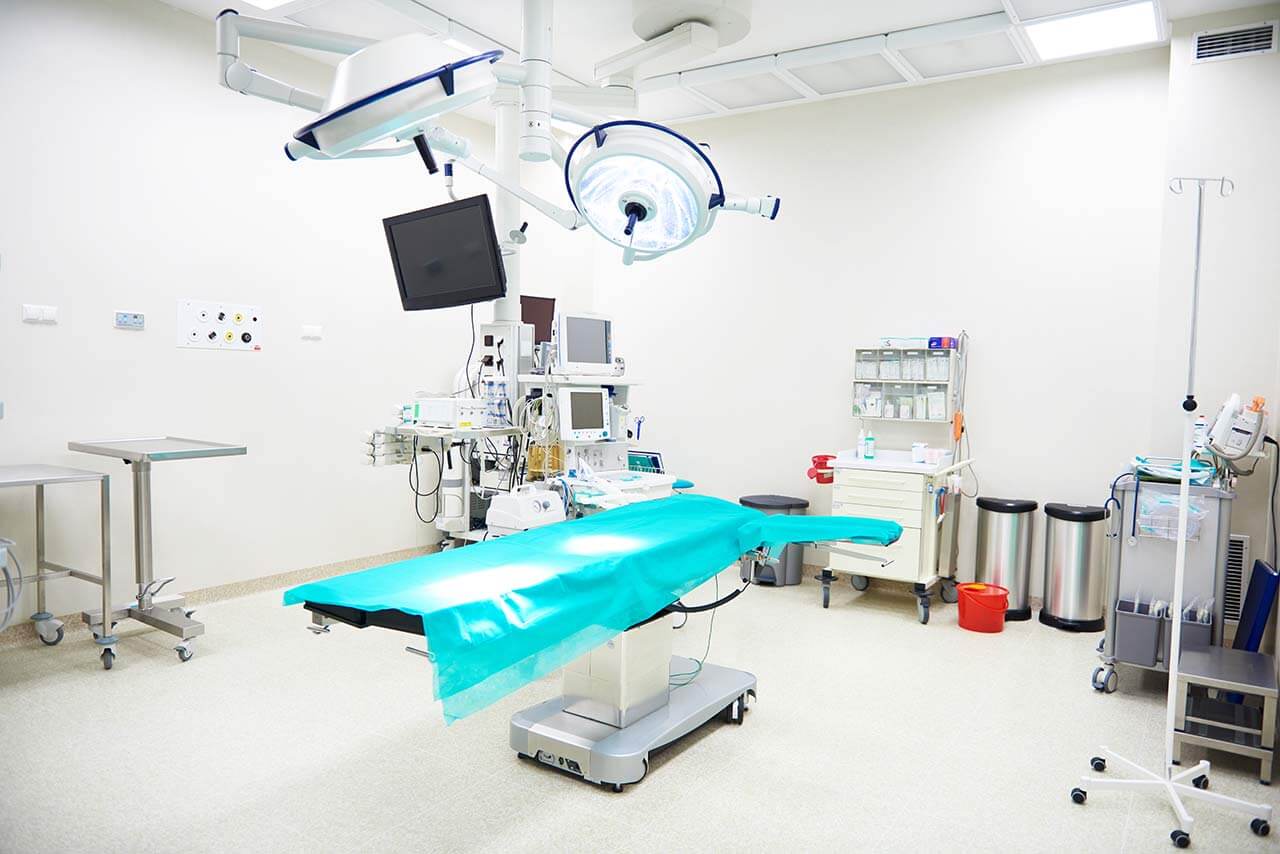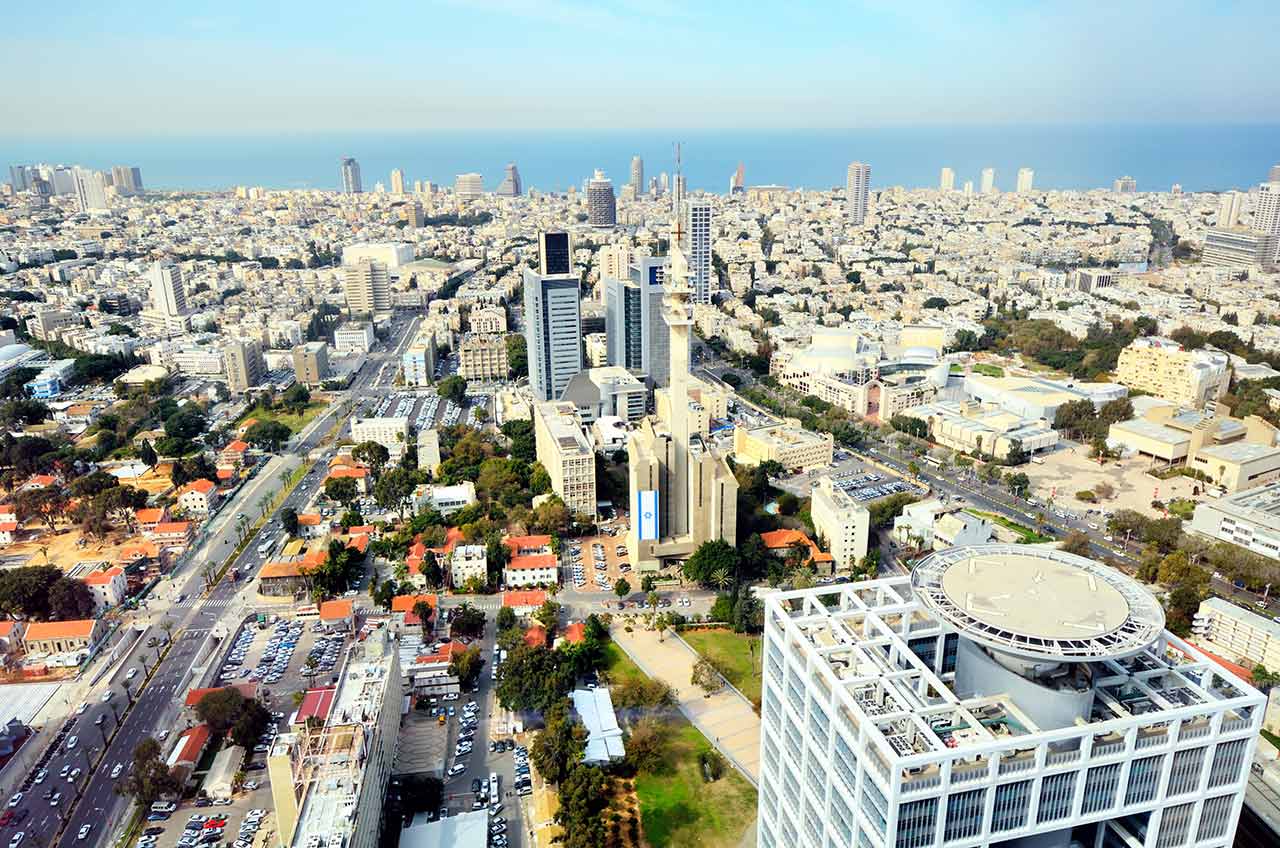
The program includes:
- Initial presentation in the clinic
- clinical history taking
- review of medical records
- physical examination
- neurological examination
- laboratory tests:
- complete blood count
- general urine analysis
- biochemical analysis of blood
- TSH-basal
- tumor markers
- inflammation indicators
- indicators blood coagulation
- abdominal ultrasound
- CT/MRI scan
- biopsy of the tumor with hystology
- consultation of related specialists
- preoperative care
- R0 resection of the tumor
- microbiological and histological examination of the remote tissues
- symptomatic treatment
- control examinations
- cost of essential medicines and materials
- nursing services
- full hospital accommodation
- explanation of future recommendations
Required documents
- Medical records
- MRI/CT scan (not older than 3 months)
- Biopsy results (if available)
Service
You may also book:
 BookingHealth Price from:
BookingHealth Price from:
About the department
The Department of Adult and Pediatric General Surgery, Colorectal Surgery at the Assuta Hospital Tel Aviv offers the full range of surgical treatment of diseases of the abdominal cavity, hemorrhoids, and anal fissures. In addition, the doctors of the department specialize in kidney, parathyroid gland surgery, treatment of hemangiomas in children, and varicose veins. The Chief Physician of the department is Prof. Dr. med. Hanoch Kashtan.
Most interventions are performed using a minimally invasive method, which is the gold standard in medicine nowadays. During such operations, the surgeons make a small incision, thereby reducing the risk of complications, the patient experiences minimal pain during the postoperative period, and the healing occurs faster.
The service range of the department includes:
- Diagnostics and treatment of pancreatitis
- Diagnostics
- Laboratory tests (blood, urine, stool tests)
- Ultrasound examination
- Magnetic resonance imaging
- Computed tomography
- Angiography of the pancreatic vessels
- X-ray examination
- Endoscopic ultrasound examination
- Endoscopic retrograde cholangiopancreatography (for bile duct imaging)
- Therapy
- Drug therapy
- Surgical treatment
- Innovative therapeutic techniques (for example, unique pancreas and insulin-producing B-cell transplantation)
- Proper diet, moderate physical activities and alcohol rejection
- Diagnostics
- Diagnostics and treatment of urolithiasis
- Remote shock wave lithotripsy (non-invasive method for stone breaking)
- Ureteroscopy and retrograde intrarenal surgery
- Percutaneous nephrolithotomy (minimally invasive surgery to remove kidney stones more than 2 cm in diameter)
- Diagnostics and treatment of liver cirrhosis
- Diagnostics
- Laboratory blood tests (including serological and immunological ones)
- Liver biopsy and laboratory examination of the biopsy sample
- Ultrasound examination
- Computed tomography
- Magnetic resonance imaging
- Liver fibroscan
- Angiography of the liver vessels
- Therapy
- Drug therapy
- Surgical intervention (in problems with bile outflow)
- Liver transplantation (in extremely advanced cases)
- Diagnostics
- Diagnostics and treatment of hemangiomas in children
- Diagnostics
- General medical examination
- Ultrasound examination
- Computed tomography
- Magnetic resonance imaging
- Radiography
- Electromyography
- Therapy
- Cryotherapy (cryodestruction) for the treatment of a simple small hemangioms
- Sclerotherapy (for the treatment of small hemangiomas)
- Electrocoagulation (high frequency current influence)
- Radiation therapy (in the case of tumor localization in hard-to-reach places)
- Ultrasound in combination with cryotherapy
- Laser therapy (especially in hemangiomas localized in the face)
- Surgical intervention
- Diagnostics
- Diagnostics and treatment of adenoids in children
- Electrocoagulation
- Сoblation
- Removal of the pathological formations of tonsils with liquid nitrogen
- Diagnostics and treatment of parathyroid neoplasms
- Diagnostics
- Clinical blood count
- Parathyroid hormone level testing
- Blood calcium test
- Ultrasound examination
- Radionuclide imaging of the parathyroid glands
- Computed tomography
- Therapy
- Parathyroid resection
- Diagnostics
- Diagnostics and treatment of varicose veins
- Endovenous laser coagulation of the varicose veins
- Radiofrequency ablation of the varicose veins
- Diagnostics and treatment of hemorrhoids
- Diagnostics
- Palpation
- Anoscopy
- Videorectoromanoscopy
- Blood count, urinalysis
- Reagent-enhanced colonoscopy
- Therapy
- Ligature
- Coagulation
- Laser surgery
- Cryosurgery
- Diagnostics
- Diagnostics and treatment of anal fissures
- Conservative therapy
- Surgical treatment
- Other medical services
Curriculum vitae
Prof. Hanoch Kashtan is one of the most experienced Israeli surgeons, leading Israeli specialists in surgical treatment of gastric and pancreatic cancer, esophageal cancer, bowel cancer, liver cancer and number of other tumors. The professor owns the most modern methods of endoscopic surgery and the very latest technologies, which allow to remove the tumor as efficiently as possible and cause minimal damage to the patient’s body, while preserving the affected organ, if possible. If it is impossible to preserve the organ, the professor brilliantly performs both open and minimally invasive surgeries to remove the stomach, esophagus, gallbladder, spleen, intestines, lymph nodes, or breast.
In addition to oncology, the professor specializes in a wide range of non-oncological surgical interventions, such as minimally invasive laparoscopic treatment of all types of hernias.
The doctor has an extensive clinical experience of more than 35 years, he took part in the international researches in the United States of America and Canada, underwent training in esophageal surgery at one of the most famous hospitals in France (Rangueil Hospital in Toulouse). Prof. Kashtan has successfully operated tens of thousands of patients.
The professor holds the important administrative positions. He is the Head of the Israeli Counseling Center for Esophageal Cancer, the Head of the International Forum for the Treatment of Esophageal, Gastric and Gastrointestinal Cancer, a Member of the Modernization Committee of the Cancer Society.
Prof. Kashtan is also a well-known researcher, he has published more than 100 researches, which were released in the most prestigious medical publications.
Memberships
- Israeli Surgical Association.
- Israel Association of Physicians.
- European Association for Laparoscopic Surgery.
- European Society for Medical Oncology.
- American Society of Clinical Oncology.
Photo of the doctor: (c) Assuta Medical Centers
About hospital
The Assuta Hospital Tel Aviv was opened in 2009 and today it is one of the largest, modern hospitals with the highest treatment success rates in Israel. The сlinical practice is based on the use of the state-of-art technologies in the world of medicine. The compliance with the high level of medical care and cooperation with the best doctors in Israel is the cornerstone of the hospital’s work and a long tradition of Assuta.
The main clinical focuses of the medical facility include cardiology, neurosurgery, orthopedics, surgery, oncology, gynecology, urology, gastroenterology, reproductive medicine, bariatrics, rehabilitation, etc.
The hospital has 16 state-of-the-art operating rooms, more than 200 beds, resuscitation units, and 2 monitoring laboratories, as well as one of the largest Imaging Diagnostic Centers and the ultramodern Cancer Center.
The hospital was awarded the prestigious certificate of the Joint Commission on Accreditation of Healthcare Organizations for its compliance with high standards of quality and safety of medical care.
Photo: (с) depositphotos
Accommodation in hospital
Patients rooms
The patients of the Assuta Hospital Tel Aviv live in comfortable spacious rooms of a five-star hotel level. The patient rooms are designed in bright colors and equipped with air conditioning, cable TV and other amenities. The rooms have a computer connected to the Internet. In addition to hospital wards, there are also hotel rooms for friends and relatives accompanying the patient, a library, a lecture hall, a recreation room, a prayer house for patients of all religions. On the territory of the hospital there are shops and cafes, where one can drink a cup of aromatic coffee or tea and have a snack.
Meals and Menus
The patients of the hospital are offered a balanced delicious three meals a day: breakfast, lunch and dinner. There are several menus to choose from, including a dietary one.
Further details
Standard rooms include:




